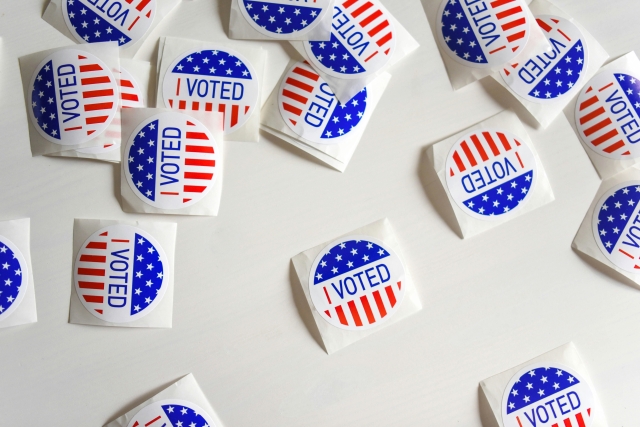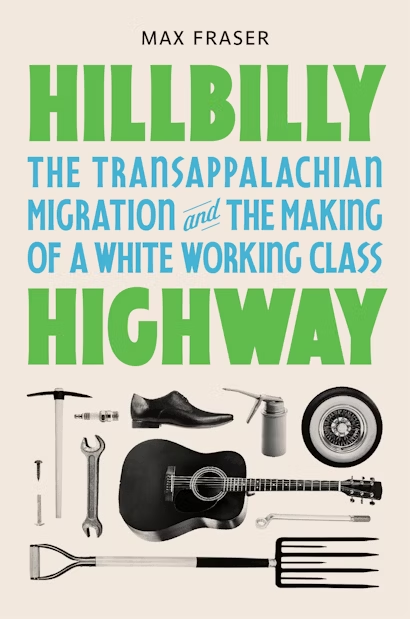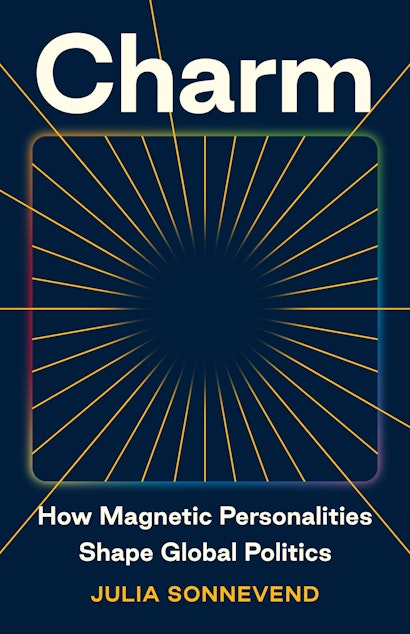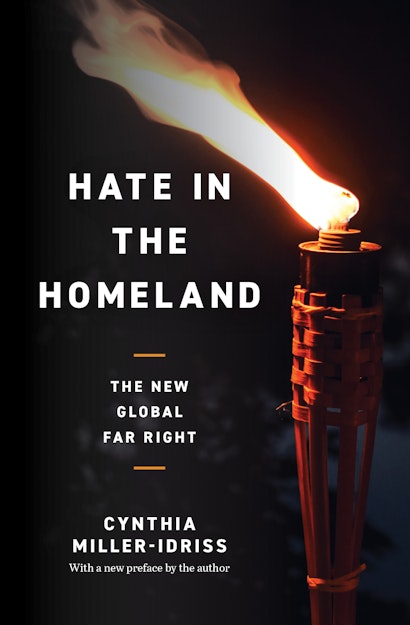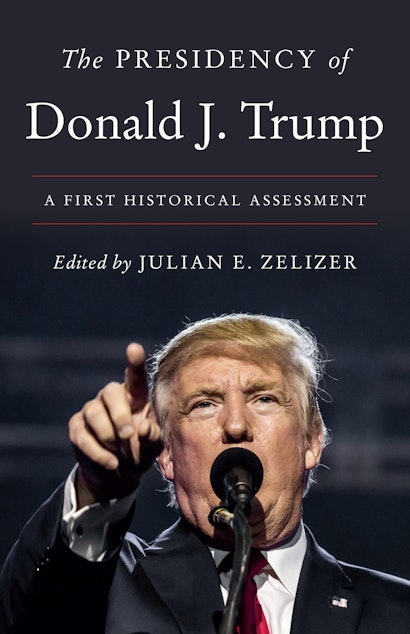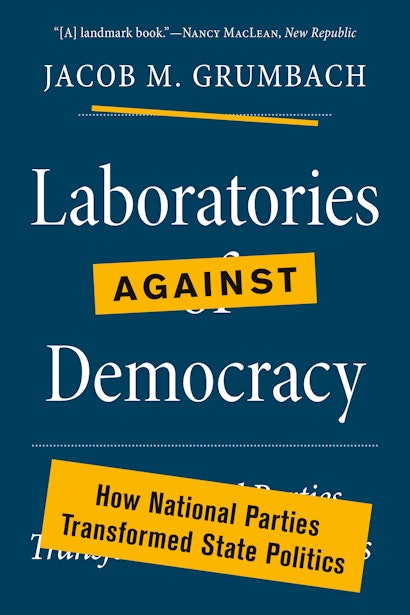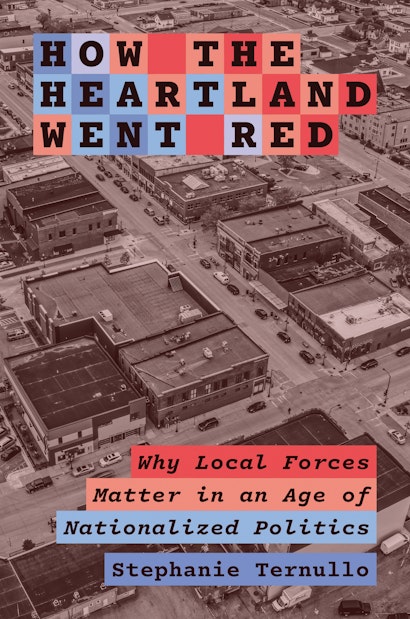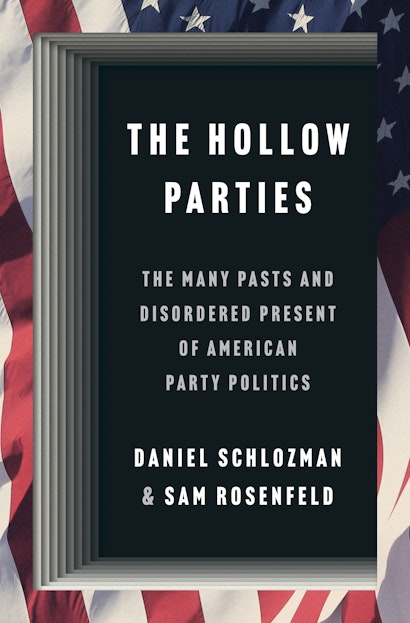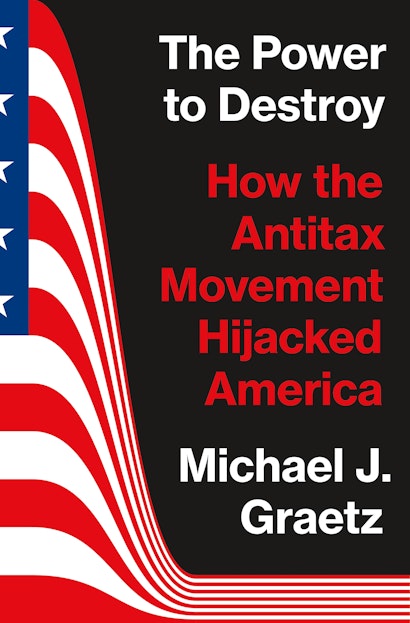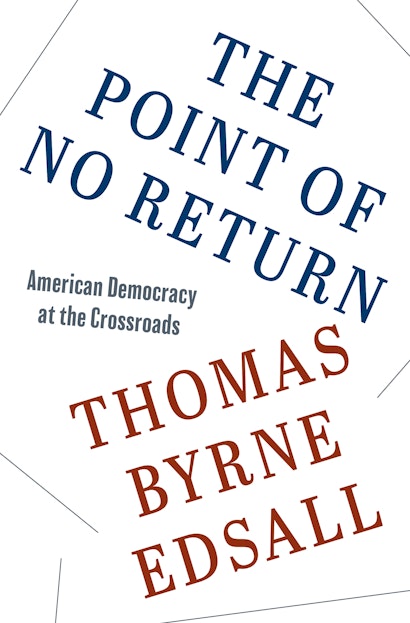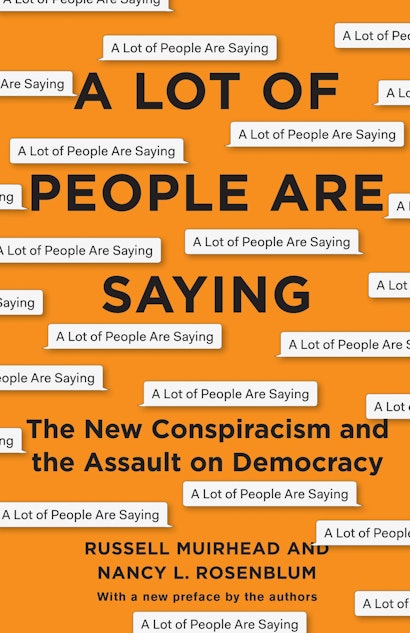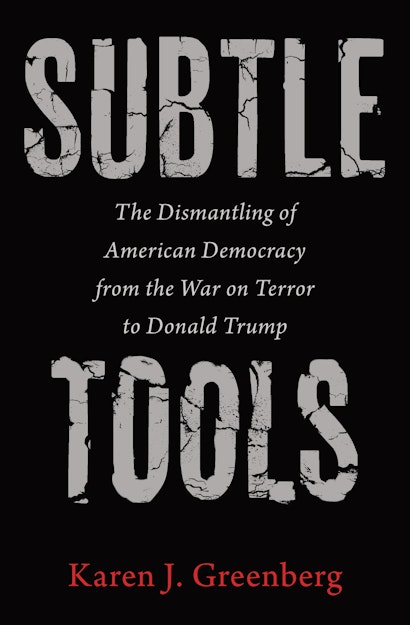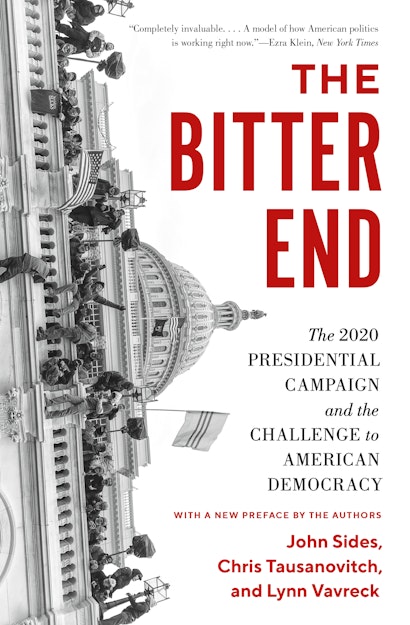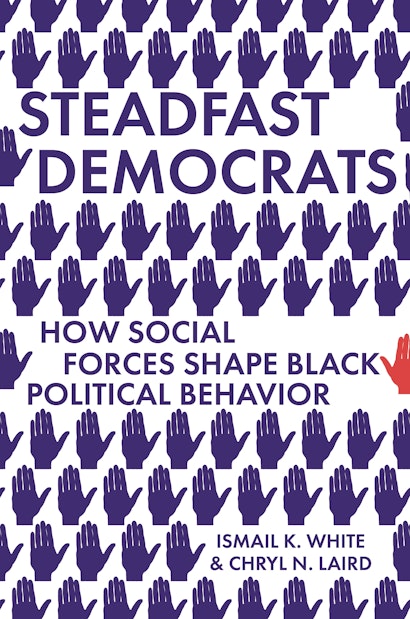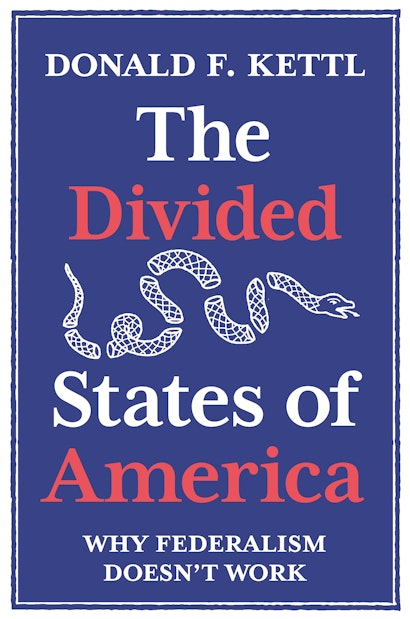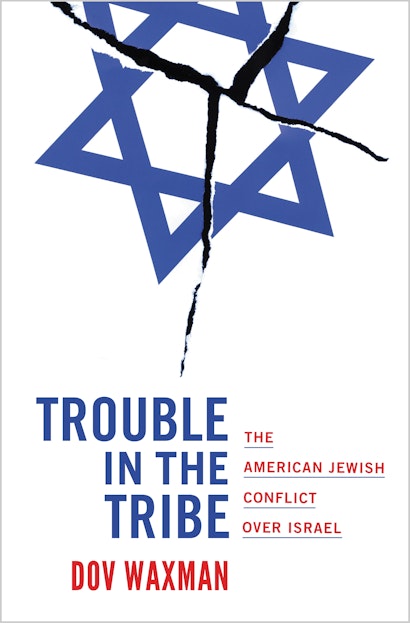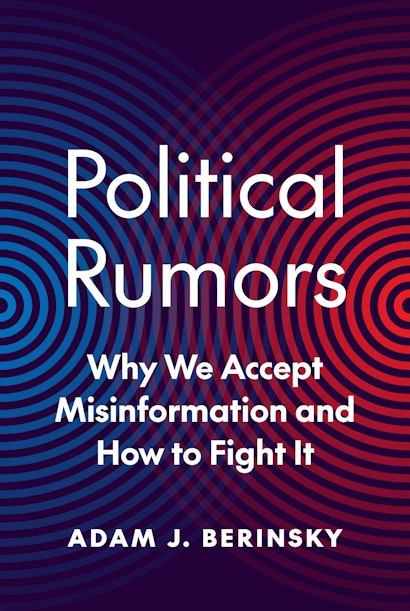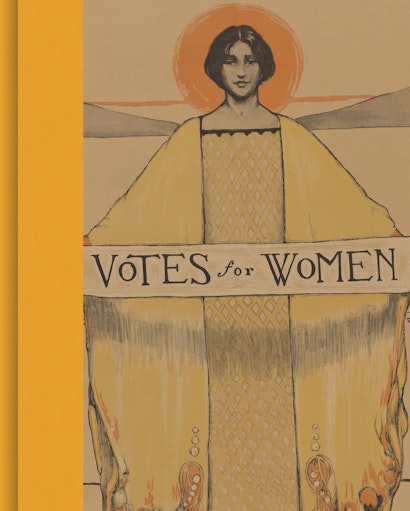Voting, both a fundamental civic duty and a hard-won right, is at the core of our democratic process. With election season upon us, delve into this list of books for understanding today’s increasingly complex election politics.
Recent Democratic and Republican party platforms display clear differences on such issues as abortion, LGBTQ+ rights, gun control, and the environment. These distinctions reflect a programmatic party system—that is, one in which policy positions serve as a key basis of electoral competition. Yet party politics were not always so issue-oriented; the rise of policy positions as the dominant marker of party appeal occurred largely over the last fifty years. In Divergent Democracy, Katherine Krimmel examines this transformation of the American party system, using innovative machine learning techniques to develop and present the first measure of party differentiation on issues since Democrats and Republicans began competing with each other in 1856.
Over the first two-thirds of the twentieth century, as many as eight million whites left the economically depressed southern countryside and migrated to the booming factory towns and cities of the industrial Midwest in search of work. The “hillbilly highway” was one of the largest internal relocations of poor and working people in American history, yet it has largely escaped close study by historians. In Hillbilly Highway, Max Fraser recovers the long-overlooked story of this massive demographic event and reveals how it has profoundly influenced American history and culture—from the modern industrial labor movement and the postwar urban crisis to the rise of today’s white working-class conservatives.
Politics is a site of performance, and contemporary politicians often perform the role of a regular person—perhaps someone we would like to have a beer with. They win elections not because of the elevated rhetorical performances we often associate with charisma (“ask not what your country can do for you”), but because of something more ordinary and relatable. The everyday magic spell that politicians cast using mass and social media is what sociologist Julia Sonnevend calls “charm.” In this engaging and enlightening book, Sonnevend explores charm (and the related “charm offensive”) as a keyword of contemporary global politics. Successful political leaders deploy this form of personal magnetism—which relies on proximity to political tribes and manifests across a variety of media platforms—to appear authentic and accessible in their quest for power.
Hate crimes. Misinformation and conspiracy theories. Foiled white-supremacist plots. The signs of growing far-right extremism are all around us, and communities across America and around the globe are struggling to understand how so many people are being radicalized and why they are increasingly attracted to violent movements. Hate in the Homeland shows how tomorrow’s far-right nationalists are being recruited in surprising places, from college campuses and mixed martial arts gyms to clothing stores, online gaming chat rooms, and YouTube cooking channels.
Voting is only one of the many ways that citizens can participate in public decision making, so why does it occupy such a central place in the democratic imagination? In Election Day, political theorist Emilee Booth Chapman provides an original answer to that question, showing precisely what is so special about how we vote in today’s democracies. By presenting a holistic account of popular voting practices and where they fit into complex democratic systems, she defends popular attitudes toward voting against radical critics and offers much-needed guidance for voting reform.
The Presidency of Donald J. Trump presents a first draft of history by offering needed perspective on one of the nation’s most divisive presidencies. Acclaimed political historian Julian Zelizer brings together many of today’s top scholars to provide balanced and strikingly original assessments of the major issues that shaped the Trump presidency.
In The Tech Coup, Marietje Schaake offers a behind-the-scenes account of how technology companies crept into nearly every corner of our lives and our governments. She takes us beyond the headlines to high-stakes meetings with human rights defenders, business leaders, computer scientists, and politicians to show how technologies—from social media to artificial intelligence—have gone from being heralded as utopian to undermining the pillars of our democracies. To reverse this existential power imbalance, Schaake outlines game-changing solutions to empower elected officials and citizens alike. Democratic leaders can—and must—resist the influence of corporate lobbying and reinvent themselves as dynamic, flexible guardians of our digital world.
Over the past generation, the Democratic and Republican parties have each become nationally coordinated political teams. American political institutions, on the other hand, remain highly decentralized. Laboratories against Democracy shows how national political conflicts are increasingly flowing through the subnational institutions of state politics—with profound consequences for public policy and American democracy.
Over the past several decades, predominantly White, postindustrial cities in America’s agriculture and manufacturing center have flipped from blue to red. Cities that were once part of the traditional Democratic New Deal coalition began to vote Republican, providing crucial support for the electoral victories of Republican presidents from Reagan to Trump. In How the Heartland Went Red, Stephanie Ternullo argues for the importance of place in understanding this rightward shift, showing how voters in these small Midwestern cities view national politics—whether Republican appeals to racial and religious identities or Democrat’s appeals to class—through the lens of local conditions.
Drawing on troubling stories of state attempts to disenfranchise military voters, women, African Americans, students, former felons, Native Americans, and others, Richard Hasen argues that American democracy can and should do better in assuring that all eligible voters can cast a meaningful vote that will be fairly counted. He shows how a constitutional right to vote can deescalate voting wars between political parties that lead to endless rounds of litigation and undermine voter confidence in elections, and can safeguard democracy against dangerous attempts at election subversion like the one we witnessed in the aftermath of the 2020 presidential election.
America’s political parties are hollow shells of what they could be, locked in a polarized struggle for power and unrooted as civic organizations. The Hollow Parties takes readers from the rise of mass party politics in the Jacksonian era through the years of Barack Obama and Donald Trump. Today’s parties, at once overbearing and ineffectual, have emerged from the interplay of multiple party traditions that reach back to the Founding.
The postwar United States enjoyed large, widely distributed economic rewards—and most Americans accepted that taxes were a reasonable price to pay for living in a society of shared prosperity. Then in 1978 California enacted Proposition 13, a property tax cap that Ronald Reagan hailed as a “second American Revolution,” setting off an antitax, antigovernment wave that has transformed American politics and economic policy. In The Power to Destroy, Michael Graetz tells the story of the antitax movement and how it holds America hostage—undermining the nation’s ability to meet basic needs and fix critical problems.
After Donald Trump’s rise to power, after the 2020 presidential election, after January 6, is American politics past the point of no return? New York Times columnist and political reporter Thomas Byrne Edsall fears that the country may be headed over a cliff, arguing that the election of Donald Trump was the most serious threat to the American political system since the Civil War. In this compelling and illuminating book, Edsall documents how the Trump years ravaged the nation’s politics, culture, and social order. He explains the demographic shifts that helped make Trump’s election possible, and describes the racial and ethnic conflict, culture wars, rural/urban divide, diverging economies of red and blue states, and the transformation of both the Republican and Democratic parties that have left our politics in a state of permanent hostility.
Conspiracy theories are as old as politics. But conspiracists today have introduced something new—conspiracy without theory. And the new conspiracism has moved from the fringes to the heart of government with the election of Donald Trump. In A Lot of People Are Saying, Russell Muirhead and Nancy Rosenblum show how the new conspiracism differs from classic conspiracy theory, how it undermines democracy, and what needs to be done to resist it.
In the wake of the September 11 terror attacks, the American government implemented a wave of overt policies to fight the nation’s enemies. Unseen and undetected by the public, however, another set of tools was brought to bear on the domestic front. In this riveting book, one of today’s leading experts on the US security state shows how these “subtle tools” imperiled the very foundations of democracy, from the separation of powers and transparency in government to adherence to the Constitution.
The year 2020 was a tumultuous time in American politics. It brought a global pandemic, protests for racial justice, and a razor-thin presidential election outcome. It culminated in an attack on the U.S. Capitol that attempted to deny Joe Biden’s victory. The Bitter End explores the long-term trends and short-term shocks that shaped this dramatic year and what these changes could mean for the future.
Black Americans are by far the most unified racial group in American electoral politics, with 80 to 90 percent identifying as Democrats—a surprising figure given that nearly a third now also identify as ideologically conservative, up from less than 10 percent in the 1970s. Why has ideological change failed to push more Black Americans into the Republican Party? Steadfast Democrats answers this question with a pathbreaking new theory that foregrounds the specificity of the Black American experience and illuminates social pressure as the key element of Black Americans’ unwavering support for the Democratic Party.
Federalism was James Madison’s great invention. An innovative system of power sharing that balanced national and state interests, federalism was the pragmatic compromise that brought the colonies together to form the United States. Yet, even beyond the question of slavery, inequality was built into the system because federalism by its very nature meant that many aspects of an American’s life depended on where they lived. Over time, these inequalities have created vast divisions between the states and made federalism fundamentally unstable. In The Divided States of America, Donald Kettl chronicles the history of a political system that once united the nation—and now threatens to break it apart.
Trouble in the Tribe explores the increasingly contentious place of Israel in the American Jewish community. In a fundamental shift, growing numbers of American Jews have become less willing to unquestioningly support Israel and more willing to publicly criticize its government. More than ever before, American Jews are arguing about Israeli policies, and many, especially younger ones, are becoming uncomfortable with Israel’s treatment of Palestinians. Dov Waxman argues that Israel is fast becoming a source of disunity for American Jewry, and that a new era of American Jewish conflict over Israel is replacing the old era of solidarity.
Political rumors and misinformation pollute the political landscape. This is not a recent phenomenon; before the currently rampant and unfounded rumors about a stolen election and vote-rigging, there were other rumors that continued to spread even after they were thoroughly debunked, including doubts about 9/11 (an “inside job”) and the furor over President Obama’s birthplace and birth certificate. If misinformation crowds out the truth, how can Americans communicate with one another about important issues? In this book, Adam Berinsky examines why political rumors exist and persist despite their unsubstantiated and refuted claims, who is most likely to believe them, and how to combat them.
Marking the centenary of the ratification of the Nineteenth Amendment in 1920, Votes for Women is the first richly illustrated book to reveal the history and complexity of the national suffrage movement. For nearly a hundred years, from the mid-nineteenth century onward, countless American women fought for the right to vote. While some of the leading figures of the suffrage movement have received deserved appreciation, the crusade for women’s enfranchisement involved many individuals, each with a unique story to be told. Weaving together a diverse collection of portraits and other visual materials—including photographs, drawings, paintings, prints, textiles, and mixed media—along with biographical narratives and trenchant essays, this comprehensive book presents fresh perspectives on the history of the movement.
